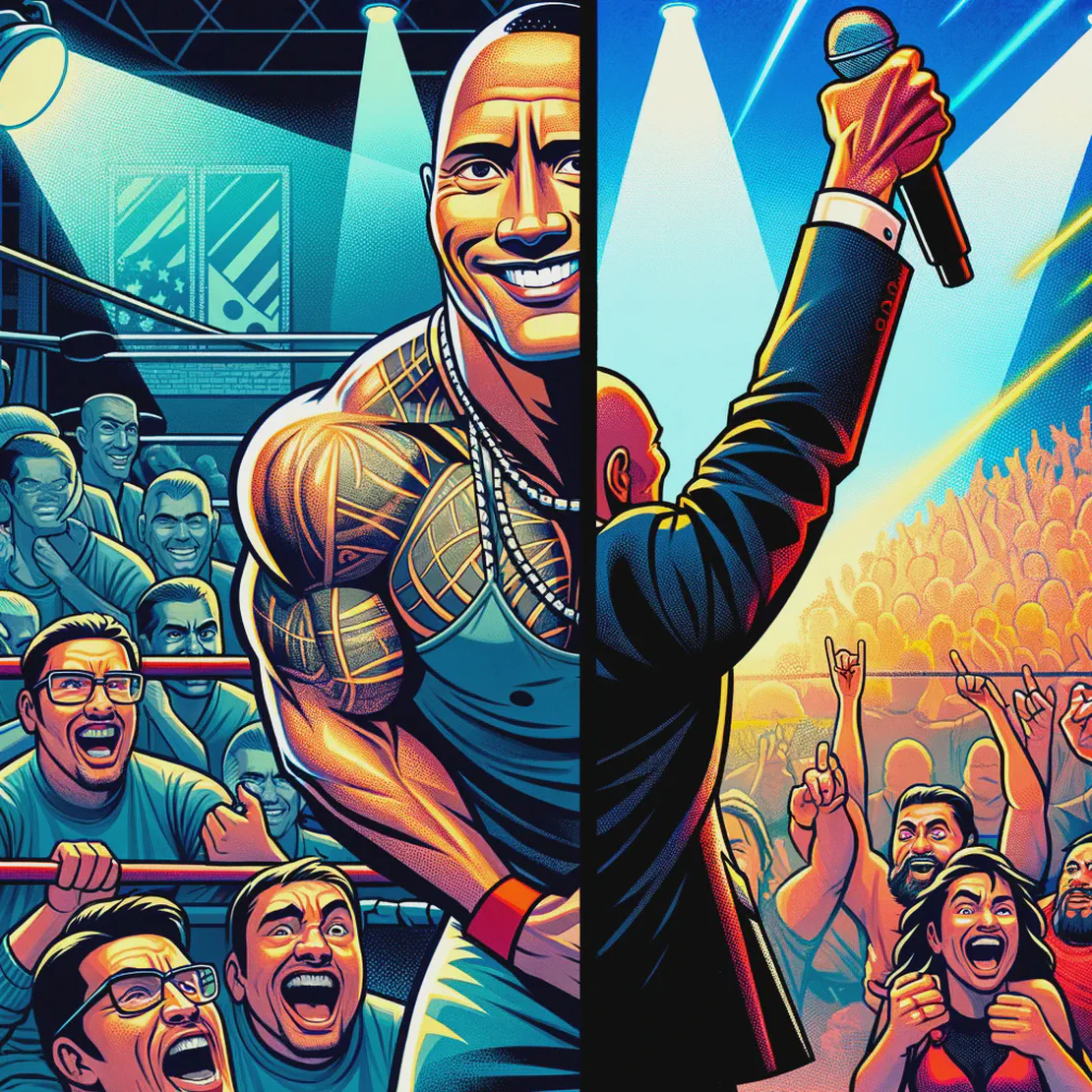
Paralympics is REAL Olympics & Free Speech Billionaire Arrested
- Andrew Schulz's Flagrant with Akaash Singh
- Comedy
- September 4, 2024
Table of Contents
At a Glance
-
Discussion on Social Media Influence - ‘imagine if people thought leaders, you know, these like big Twitter celebrities, imagine if they’re all being, you know, infiltrated with information.’ This highlights concerns about how social media can manipulate public opinion and the potential for influential figures to be targeted by orchestrated campaigns.
-
Comment on Government and Social Media - ‘You don’t want to shut down a Facebook and Instagram, anything on meta and even maybe Twitter.’ This point raises the issue of government involvement with major social media platforms, suggesting a complex relationship that could affect freedom of speech and public discourse.
-
Insight on Free Speech and Platform Responsibility - ‘If you don’t punish the people, then you should be responsible.’ This comment addresses the ethical responsibilities of social media platforms in moderating content and the consequences of their policies on user behavior.
-
Humorous Take on Trans Athletes - ‘I would do that. I’m gonna have to tuck.’ This light-hearted comment brings humor into the discussion about trans athletes, reflecting on the complexities and sensitivities of gender identity in sports.
-
Serious Note on Religious Beliefs and Truth - ‘God doesn’t lie. Whether or not these things that he’s saying have happened, he doesn’t lie.’ This part of the conversation delves into the role of faith and belief systems in providing comfort and a sense of truth in a world where misinformation is prevalent.
-
Cynical View on Historical Education - ‘my generation, we just implicitly trusted what the government told us, what the history books told us.’ This reflects a critical perspective on how history is taught and the potential biases in educational content, which could mislead or shape public perception inaccurately.
-
Joke on Circus Attendance - ‘What you doing tonight? You going to the circus?’ This humorous exchange pokes fun at the outdated or peculiar nature of circuses, using humor to lighten the conversation and provide a break from more serious topics.
What to Do
-
‘Reject immediate indulgences for long-term well-being’ - Choosing short-term pleasures often leads to negative consequences later, and discipline is required to live a life that consistently feels good.
-
‘Question historical narratives and seek truth’ - It’s important to critically analyze the information taught by authorities, as it may be biased or incomplete, fostering a more informed and questioning mindset.
-
‘Keep governments accountable’ - By scrutinizing government actions and ensuring they are held responsible, it may deter future dishonesty or manipulation.
-
‘Approach conspiracies with skepticism’ - While it’s engaging to explore conspiracies, it’s crucial to critically evaluate their validity, separating fact from fiction to avoid misinformation.
-
‘Value transparency and honesty in information’ - Promoting openness and truth in all forms of communication, especially from those in power, builds a more informed and less cynical society.
-
‘Recognize the role of belief systems in societal cohesion’ - Understanding that various beliefs, whether religious or secular, play a significant role in organizing and maintaining societal order.
-
‘Be aware of the influence of digital platforms on opinions’ - Acknowledging that social media and other platforms can shape perceptions and beliefs subtly and should be navigated with awareness of potential biases.
-
‘Maintain personal integrity and ethics’ - In a world with varying truths and widespread misinformation, holding onto personal ethics and values becomes paramount for individual peace and societal stability.
What to Get
-
Telegram - Used for secure communication, features encryption to protect user data.
-
Vcontact - A social media platform similar to Facebook, used in Russia for networking and communication.
-
Facebook - A global social media platform used for networking, sharing information, and communication.
-
Twitter - A social media platform used for sharing short messages or tweets, often used by influential figures to disseminate information.
-
Instagram - A social media platform focused on photo and video sharing, used for personal and promotional purposes.
-
TikTok - A platform for sharing short videos, popular among younger demographics for entertainment and expression.
-
YouTube - A video sharing platform used for uploading, sharing, and viewing video content, ranging from entertainment to educational material.
Summary
In this podcast episode, the hosts delve into a variety of contemporary and provocative topics, primarily focusing on the influence of conspiracy theories, the role of religion and government in society, and the impact of technology on privacy and communication.
The conversation begins with a discussion on the addictive nature of conspiracy theories and their prevalence in society. The hosts explore how these theories can serve a similar purpose to religion, in that they provide a framework for understanding the world, albeit often based on unverified or false information. They ponder the societal effects of such beliefs, comparing the organizing and controlling aspects of religion with those of government propaganda, suggesting that both can act as a “religion of the nation” to maintain societal order.
A significant portion of the discussion is dedicated to the role of technology, particularly focusing on the messaging app Telegram and its founder, Pavel Durov. The hosts discuss the app’s encryption features, which provide privacy and security for its users, contrasting it with other platforms that are more susceptible to government surveillance. They highlight the dual-use nature of such technologies, where they can be used both for protecting free speech and for more nefarious activities like illegal trade and spreading misinformation.
The hosts also touch upon the disillusionment with traditional institutions like government and media, exacerbated by historical events and lies propagated by those in power. They reflect on how this disillusionment leads to a greater reliance on personal networks and encrypted communication platforms as alternative sources of information and means of organization.
Throughout the episode, the hosts maintain a critical yet humorous tone, often using anecdotes and personal experiences to illustrate their points. They express skepticism about official narratives while also acknowledging the complexity of finding reliable sources of truth in an era dominated by information overload and sophisticated technology.


